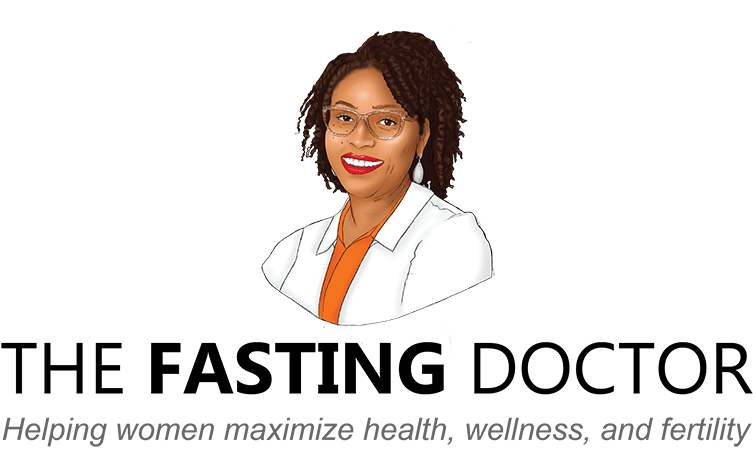With the recent surge of COVID-19, and without a definitive treatment (though studies are underway), many of us are looking at natural ways to support immune health. Please do not mistake this article to imply “fasting prevents coronavirus” as we do not have data to support that statement. However, this blog post will provide a brief review of various studies demonstrating decrease inflammation and improvement in the immune response. Many “healthy” appearing individuals suffer from inflammation and dysregulation of the immune system. Let’s take a look at how intermittent fasting places us in the position to maintain and improve health from the inside out.
CYTOKINE PRODUCTION
Cytokines are proteins which help provide feedback and regulate the interaction between our cells and our immune systems. Cytokines, when regulated properly, are not harmful. However, anyone suffering from severe autoimmune disease, such as rheumatoid arthritis and lupus, understand what it’s like for cytokine production to respond inappropriately. In fact, immunosuppression through medications such as steroids or other agents aim to decrease the production of various inflammatory proteins such as tumor necrosis factor (TNF alpha), interleukin 6 (IL-6), interleukin 1 (IL-1), and others.
CONTRIBUTORS TO INFLAMMATION
The causes of inflammation are complex; many are attributable to lifestyle. Behaviors which are associated with increased inflammation include:
- Nutrition: Highly processed foods, including highly refined carbohydrates. Think of the SAD diet (Standard American Diet).
- Lack of physical activity.
- Gut health.
- Poor sleep quality.
INTERMITTENT FASTING AND INFLAMMATION
Did you know that fasting is a natural way to decrease markers of inflammation? While we may never know the entire spectrum of how fasting reduces inflammation, research highlights the following mechanisms:
- Ketosis. Ketone bodies are known to combat inflammation. Ketogenesis promotes fat breakdown (lipolysis), promotes autophagy, and holds therapeutic benefits (eg treatment of seizure disorders) (1).
- Lower insulin levels. When insulin works in perfect harmony within our body, there is no reason to vilify it. However, hyperinsulinemia is an underlying component of many disease states. Increased amounts of insulin serve as a stimulus for growth, increasing adipose (fat) deposition. Fat, in itself, is metabolically active. While debate still remains on what causes dysfunctional fat to release inflammatory cytokines, we know high insulin levels play a role (2). Fasting is one of the most effective ways to lower insulin levels, which can assist in decreasing insulin levels and decreasing fat stores.
- Cytokine levels. As mentioned above, certain cytokines promote a state of inflammation and abnormal immune responses. Animal and human studies demonstrate that time restricted feeding causes a reduction in several markers of inflammation, including IL-6, TNF-alpha, and IL-1 (3).
IMPLICATIONS IN COVID-19 AND OTHER VIRAL OR BACTERIAL INFECTIONS
As stated before, I cannot state that intermittent fasting is the “cure” for COVID. In fact, at this point in time, it would be reckless to claim that any proposed treatment is “the cure.” However, as with most human diseases, the stronger our immune system is at baseline, the greater our ability to fend against and recover from illness. Chronic medical conditions and a state of inflammation can increase susceptibility to disease.
While some propose extended fasting (lengths greater than 48 hours) as a way to decrease inflammation, I personally am hesitant to see individuals practice extended fasting during a pandemic. Extended fasting, particularly when conducted too frequently can serve as a stressor of its own. Remember, the key is to reduce stressors to allow the body’s immune system to divert its full attention to remaining healthy. However, intermittent fasting, can reduce inflammation and improve one’s baseline health.
If there were ever a time to adopt a whole, real foods diet and practice gut rest, the time is now! Improving one’s health is one of the greatest measures for disease prevention!
*** Featured Image courtesy of Longo, V. D., & Mattson, M. P. (2014). Fasting: molecular mechanisms and clinical applications. Cell metabolism, 19(2), 181–192. https://doi.org/10.1016/j.cmet.2013.12.008
REFERENCES
- Longo VD, Mattson MP. Fasting: molecular mechanisms and clinical applications. Cell Metab. 2014;19(2):181-92.
- Crewe C, An YA, Scherer PE. The ominous triad of adipose tissue dysfunction: inflammation, fibrosis, and impaired angiogenesis. J Clin Invest. 2017;127(1):74-82.
- Mattson MP, Longo VD, Harvie M. Impact of intermittent fasting on health and disease processes. Ageing Res Rev. 2017;39:46-58
DISCLAIMER: The advice on this page is not meant to replace or represent medical advice. This is nutritional advice, which is NOT the same as medical advice. Before any weight loss endeavor, the consultation of an experienced health care provider is a must. As a general rule, the following individuals should not participate in fasting:
- Diabetics-particularly those on insulin
- Lactating women
- Pregnant women
- Individuals with a history of eating disorders
- Children under the age of 18
This list is not
Interaction through this blog’s associated social media accounts, podcasts, and other venues associated with The Fasting Doctor does not constitute a patient-physician relationship. Likewise, it does not constitute medical advice. By continuing to access this blog or related resources, you acknowledge and agree that the content and contributors are not liable for your personal use of dietary and wellness advice found in our contents. You acknowledge our recommendation to consult your care provider before utilizing our nutritional information.
For more information, please contact me at info@thefastingdoctor.com!





No Comments